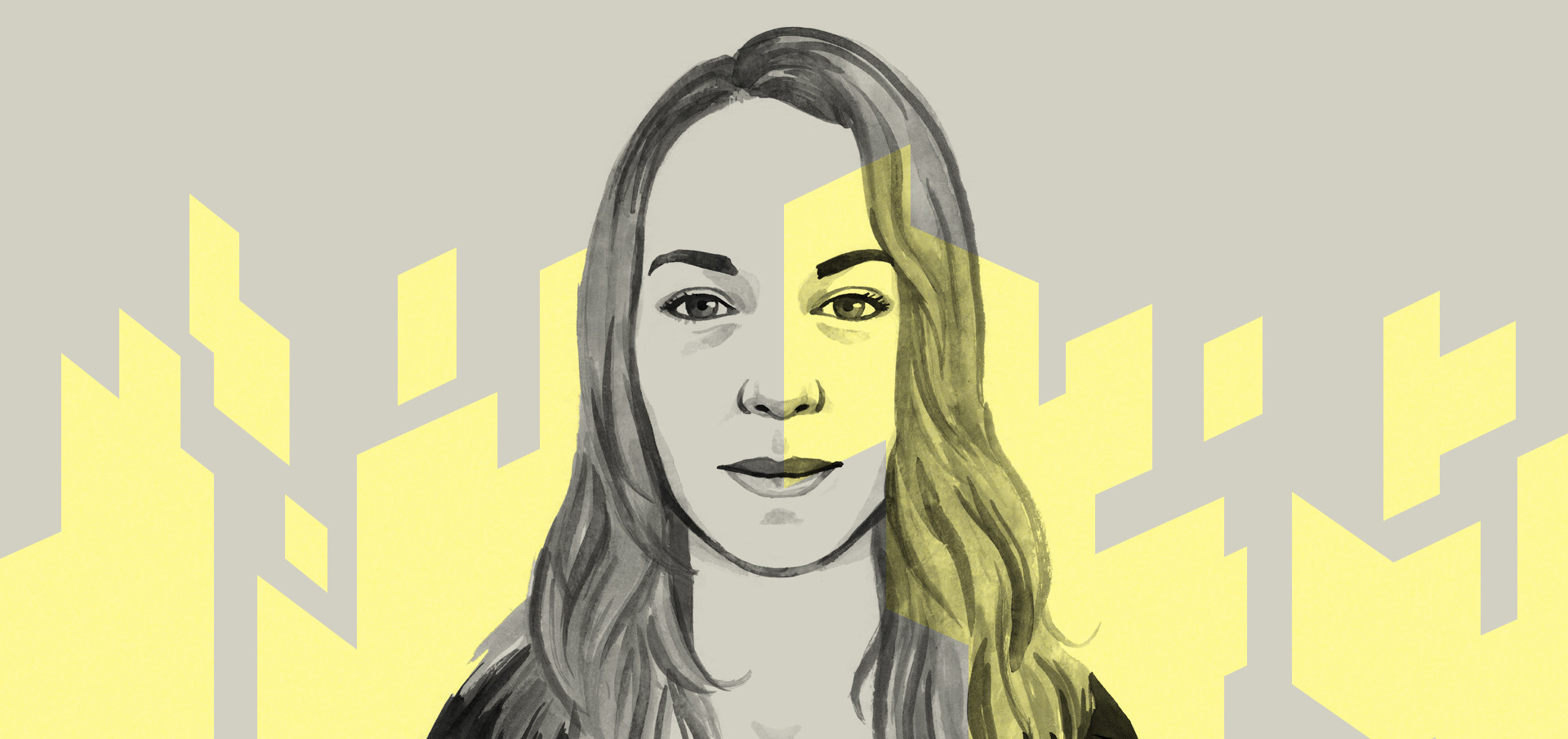Traditionally, the Fourth of July is a time of celebration and reflection. Families and neighbors gather to commemorate America’s independence, grill national foods like hot dogs and corn on the cob, and shoot fireworks into the sky.
But that is not how I spent the Fourth of July.
This year, I spent the Fourth of July looking at anti-Semitic propaganda published by our prospective Republican presidential candidate, Donald Trump. I gazed at a graphic he tweeted of Hillary Clinton next to a pile of money and a Jewish Star of David, with the words “most corrupt candidate ever” written on the star. I went to the Twitter account from where Trump’s advisor stole the graphic, which was full of swastikas and racist imagery. I spent the day of celebration for America’s past looking into America’s future, and seeing only darkness to come.
The year 2016 is the year extremism became mainstream in America
The year 2016 is the year extremism became mainstream in America. Political movements at the fringes have been pulled, by candidates like Trump, to the center. Today the unspeakable is not only spoken, but screamed: rhetoric of hate, division, and lies, amplified by a financially decimated media to a politically fractured and economically struggling public.
How did it come to this?
As a journalist and anthropologist, I am often asked by European audiences: how did it come to this? On one hand, you already know. The same trends – the rise of right-wing demagogues, the lack of stable jobs in post-industrial regions, the replacement of welfare with austerity – have shaped not only the United States, but Europe as well. Since the U.S. election season began, the United Kingdom has voted to leave the EU, ushering in a wave of hate crimes against British migrants and Muslims; Poland, Hungary, Austria and other European countries have seen the popularity of xenophobic parties surge; and youth in many EU states have continued to suffer from high unemployment and low opportunity.
Some U.S. pundits, when analyzing the ascendency of a demagogue like Trump, have declared that “no one saw it coming.” The truth is, a lot of Americans saw it coming
These are shared Western burdens. They are a product of the instability brought on by crises like the 2008 global collapse, and the uneven “economic recovery” that followed. But while Europe and the U.S. face mutual hardship, the dysfunction of U.S. politics is expressed in a distinctly American way. Our crisis is conveyed in the language of Hollywood spectacle, in our uniquely divisive two-party system, in the eruption of centuries-old racial tension, in a rapacious tabloid media and two American icons – Donald Trump and Hillary Clinton – who have dominated it for 25 years.
Some U.S. pundits, when analyzing the ascendency of a demagogue like Trump or the insurgency of a populist candidate like Bernie Sanders, have declared that “no one saw it coming.” The truth is, a lot of Americans saw it coming – but we tend to be the people most marginalized by a failed system, and therefore our perspective is rarely acknowledged. Non-white Americans who endured the rise of hate crimes and police brutality over the past decade saw it coming. Americans outside wealthy coastal cities who never got back the jobs they lost in 2008 saw it coming. Young Americans who have known nothing but an economically devastated country at war saw it coming.
The view from Flyover Country
I am one of the Americans who saw it coming. For the past four years, I have worked as a journalist covering issues like economic exploitation, racial conflict, political corruption, and media bias. The essays I wrote from 2012-2014 are collected in a book called “The View from Flyover Country”, and they help explain how America inherited the mess it contends with today.
“Flyover country” is a pejorative term coined to describe where I live – the Midwest
“Flyover country” is a pejorative term coined to describe where I live – the Midwest, a region viewed as insufficiently interesting for American elites to visit. Though stereotyped as white and conservative, the Midwest is actually a demographically, religiously, and ideologically diverse mix of communities and states. The only thing that really ties the Midwest together is the economic devastation we have experienced since 2008 – devastation which underlies much of the despair and rage of the 2016 presidential campaign. Midwest life is a paradox: the cost of living is cheap, but decent jobs are few. Corruption remains pervasive, but in the Midwest, arguably more than in other regions, people tend to rise up against the dire circumstances they face.
Like correspondent Arjen van Veelen, I live in St. Louis, Missouri, which as you may know from his work, is one of the poorer and more violent cities in the United States. And like Arjen, I covered the Ferguson uprising, along with the everyday crises of life in St. Louis: poverty, racism, police brutality, and the attempts of ordinary residents of Missouri to change their region, and their country, for the better.
Missouri can be a hard place to live, but it is a fitting place to study a country undergoing a crisis of identity. Located in the center of the United States, Missouri has long been where competing notions of American identity take shape. Missouri is where the slave Dred Scott sued for his freedom; where Mark Twain told pointedly political tales of life by the Mississippi River; where Walt Disney conceived of his fantasy empire; where the explorers Lewis and Clark justified westward imperialism; where black musicians like Scott Joplin and Chuck Berry pioneered quintessentially American genres like ragtime and blues and rock.
Missouri can be a hard place to live, but it is a fitting place to study a country undergoing a crisis of identity
For roughly one hundred years, Missouri was known as the “bellwether state”, for the uncanny ability of its voters to pick the winner of presidential elections, until 2008, when Barack Obama won, and Missouri – also consistent in its racism – bucked its own trend to vote for Obama’s white opponent. They did so again in 2012.
In this year’s electoral primaries, Missouri was evenly split for both parties – the Democratic vote was divided in half between Clinton and Sanders, and the Republican vote was divided in half between Trump and his former opponent Ted Cruz. These divides reflect the ideological diversity and fractiousness of Missouri, where northern and southern, eastern and western, rural and urban, and conservative and progressive ideas of America all collide.
The elections and beyond
Over the next four months, I will be covering the election for De Correspondent, and with it, the broader issues affecting America: economic inequality, political extremism, media sensationalism, and frustration with the widely derided entity known as “the establishment.” I will provide commentary on current events – and with this election, there is no shortage of bizarre or horrifying events on which to comment – along with original reporting on the structural issues shaping American life.
The crisis America is facing did not begin during this election, and it will not end when the election is over, regardless who wins. What you are witnessing is a shift in American political culture: the normalization of bigotry in mainstream politics, and a breakdown of trust in institutional power. I will be chronicling my country’s transformation, and hopefully its redemption, in the months to come. I look forward to hearing your feedback and answering your questions.
More stories from The Correspondent:
 What I had to tell my daughter about the America of her black classmates
For centuries, black Americans have been systematically brutalized. Now that we have video evidence – going viral – you would expect things to change. But even video cannot open the eyes of those who refuse to see.
What I had to tell my daughter about the America of her black classmates
For centuries, black Americans have been systematically brutalized. Now that we have video evidence – going viral – you would expect things to change. But even video cannot open the eyes of those who refuse to see.
 The British are going to miss the continent. Not for what Europe is, but for what it is not.
In a close but convincing referendum, the British voted for a Brexit. That’s not wholly surprising: It’s hard to see what you’d be missing, without Europe. Because the story of Europe is largely an account of all that has vanished.
The British are going to miss the continent. Not for what Europe is, but for what it is not.
In a close but convincing referendum, the British voted for a Brexit. That’s not wholly surprising: It’s hard to see what you’d be missing, without Europe. Because the story of Europe is largely an account of all that has vanished.
 The bizarre tale of President Nixon and his basic income bill
In 1969 President Richard Nixon was on the verge of implementing a basic income for poor families in America. It promised to be a revolutionary step – had the President not changed his mind at the last minute. This is the incredible and largely forgotten tale of just how close the U.S. came to stamping out poverty altogether.
The bizarre tale of President Nixon and his basic income bill
In 1969 President Richard Nixon was on the verge of implementing a basic income for poor families in America. It promised to be a revolutionary step – had the President not changed his mind at the last minute. This is the incredible and largely forgotten tale of just how close the U.S. came to stamping out poverty altogether.



